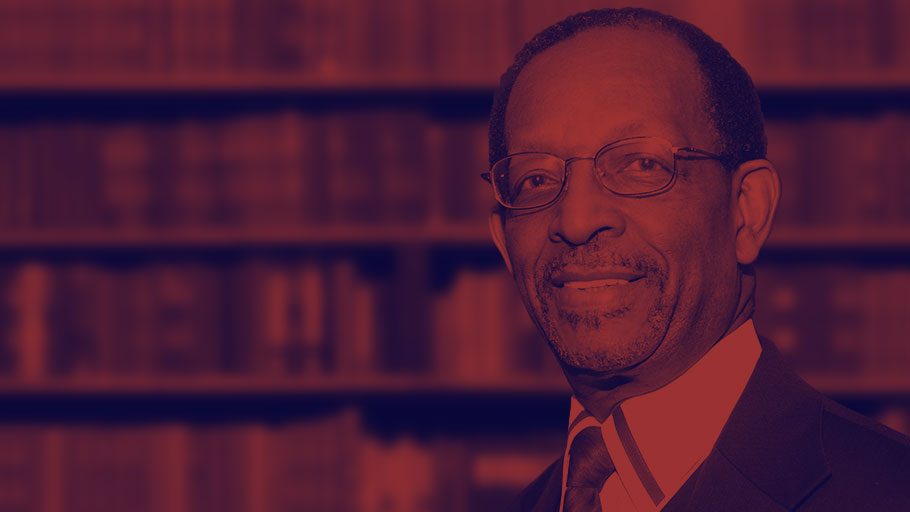Obama’s Bucket List
Why the President Should Visit Haiti
[For Publication the Week of January 11, 2016]
Recently much attention has been made of President Obama’s “bucket list,” those things he would like to accomplish before the end of his term. Among the items on his list is a visit to Cuba. This would be a dramatic event, climaxing one of the signature achievements of his presidency – breaking the decades- long diplomatic and economic isolation of Cuba to usher in a new era of normalized relations. The site of an American President, the first African American President, being welcomed in Cuba, an Afro-Hispanic nation, would be stunning and historic!
But, I also believe a visit to Haiti, the world’s first Black Republic should be on Obama’s bucket list. The Haiti Support Project of the Institute of the Black World 21st Century always views January as Haitian Independence Month because it was on January 1, 1804 that General Jean Jacques Dessalines declared Haiti’s independence. This after a long, brutal but glorious struggle for self-determination during which the Haitian freedom fighters defeated the British, Spanish and ultimately decimated the army of Napoleon Bonaparte of France! Never in the history of humankind had an enslaved people defeated their slave masters to create an independent nation. The Haitian Revolution, which gave birth to the world’s first Black Republic, was one of the greatest feats in history! Not only did the Haitian freedom fighters create an independent nation at the height of the European and American slave trade, they further declared that any enslaved person who set foot on Haitian soil would be free!
These declarations alone are of sufficient historical significance to warrant acknowledgement with a visit by President Obama. This recognition would be particularly significant since Haiti was stigmatized, marginalized and punished by the U.S. and other slave trading nations for fear that the example of an independent Black nation would be infectious, spreading among enslaved Africans everywhere to fuel rebellions. This was indeed what happened.
However, before we address this aspect of Haiti’s legacy in more depth, it is important to state that President Obama should also visit the first Black Republic because the U.S. owes a huge debt of gratitude to Haiti for its contributions to this nation’s struggle for independence and the expansion of its territory. Under the leadership of General Henri Christophe and at the behest of the French, Haitian troops contributed to the defeat of the British in the battle of Savannah during the Revolutionary War. Indeed, during the commemoration of the bi-centennial of Haiti’s independence in 2004, Haitian-American Daniel Fils Aime led a successful campaign to have a monument to this achievement erected in Savannah.
The colonies achieved their independence and were able to found a new nation on what was Native American land, because the Louisiana Purchase was a direct outgrowth of the defeat of Napoleon’s armies by the Haitian Freedom Fighters. This disastrous defeat ended Napoleon’s grand vision of creating an economic axis between Saint Dominique (Haiti), the most prosperous “colony” in the Caribbean and the vast French territory in North America, anchored by the city of New Orleans at the mouth of the Mississippi River. After the humiliating defeat at the hands of the Haitians, Napoleon abandoned this ambitious goal and sold the Louisiana Territory to the U.S. at a bargain basement price. The size of the U.S. nearly doubled as a result of this acquisition, a fact that Americans should forever be thankful to the Haitians for facilitating.
As I mentioned earlier, the Haitian Revolution was a beacon of hope and possibilities for people of African descent everywhere including in the U.S. Denmark Vesey planned the most extensive insurrection of enslaved Africans ever conceived in the U.S. What was his destination had the revolt succeeded? Haiti! Indeed, as Dr. Leon Pamphile details in his brilliant book Haitians and African Americans: A Heritage of Tragedy and Hope, there is a long history of positive engagement between Haitians and African Americans. King Henri Christophe’s first Minister of Education was and African American. And, scores of African Americans migrated to Haiti to escape oppressive life in the U.S. Frederick Douglass was appointed the first Ambassador to Haiti and pointedly warned against treating the Black Republic as a U.S. colony. A prosperous Black community in North Carolina with a thriving business district was named Hayti – a sign of the significance of the first Black Republic in the consciousness of Africans in America.
When the U.S. invaded Haiti in 1915, it was the NAACP under the leadership of Walter White that led the opposition to the U.S. occupation. The reality of an independent Black nation in the Caribbean undercut the argument of Black inferiority as a rationale for legal and de facto segregation in the U.S. Haiti was a beacon of hope to African people everywhere!
Needless to say, as illustrated by the invasion and occupation in 1915, support for the ruthless Duvalier regimes and constant destabilizing interventions and interference in Haiti, the U.S. has seldom afforded the First Black Republic the dignity, respect and support its historical significance and contribution to this nation deserve. A state visit by President Barrack Obama would be an occasion to acknowledge these historical wrongs and properly recognize Haiti’s contribution to the U.S. and the World! It might also usher in a new era of respectful and mutually beneficial relations with Haiti; a nation with 10 million people (with a vibrant and productive Diaspora in the U.S.) which has the potential to become an economic powerhouse in the region. So, President Obama, add a visit to Haiti to your “bucket list,” and while you’re there add a tour of the magnificent Citadel, one of the greatest monuments to freedom and self-determination in the world, to the itinerary. Let the planning begin for a glorious experience in the World’s first Black Republic!















